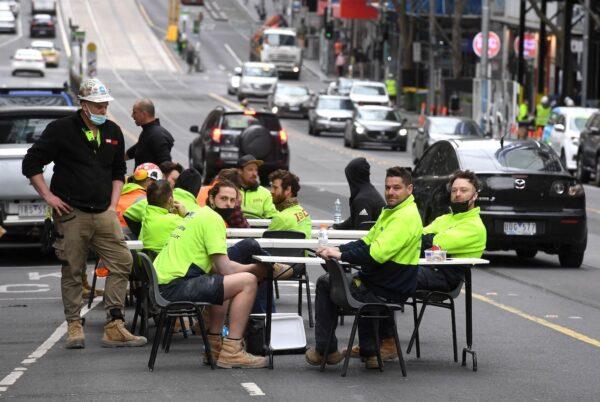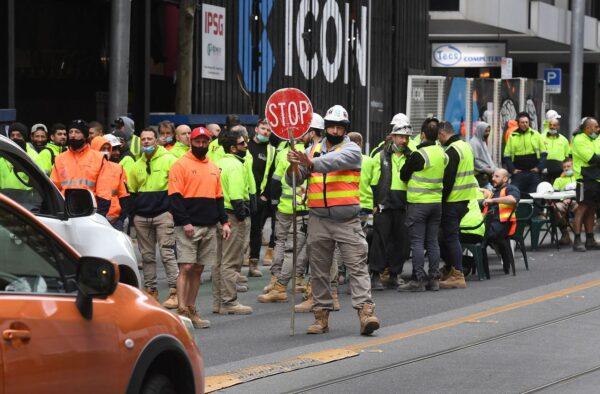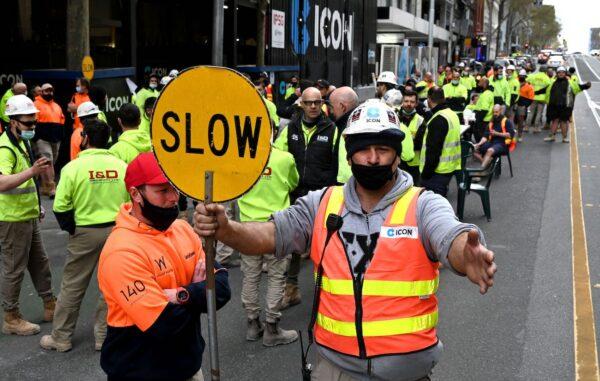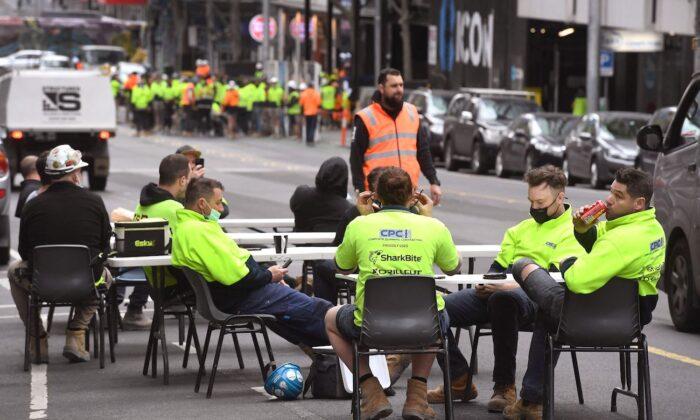

The largely-silent protest comes a day after Victorian Premier Daniel Andrews announced that construction workers “will need to show evidence to their employer that they have had at least a first dose of a coronavirus vaccine by 11:59 p.m. on the 23rd of September.”
“Basically, construction workers have a week to go and get a first dose.”
Victoria’s vaccination mandate for the industry comes as officials say 13 percent of active cases in the state are linked to construction sites.

Andrews said the government’s decision followed health advice which aims to keep the construction industry working at a 25 percent workforce cap.
“If they want to work and be part of that 25 percent, they need to be vaccinated with one dose by midnight next Thursday night,” he said. “If they’re not, they won’t be able to come on-site.”
John Setka, secretary of Victoria’s construction union CFMEU, described the decision to close tea rooms as “appalling.”
“It’s not really a protest,” he claimed on 3AW radio on Friday. "What they decided was if we can’t sit in the smoko shed, where do we have our break? So they’ve taken all the tables and chairs out into the fresh air.”
“They’ve got nowhere else to have their smoko.”
Setka told 3AW earlier this week that CFMEU would not support the use of mandatory vaccines.
“I don’t support anything being compulsory,“ he said on Tuesday. ”People have genuine health concerns, but I believe we should listen to the experts.”
“There are some people with legitimate health concerns over being vaccinated, and I think we’ve got to respect that.”
When asked if the union would represent workers laid off because of refusing vaccination, Setka said, “We will take each case.”
“We’re trying to rotate people coming in and out, but we’re suffering as an industry pretty badly at the moment. We realise how important we are to the economy, and it’s very important for us to keep working.”
Meanwhile, Jeroen Weimar, the COVID-19 Commander, defended the decision to place restrictions on tea break rooms as there is a “significant risk of transmission” in them.
“So many employees would love to be at work ... people are bending over backwards to keep the construction industry going and keep important sites going for important reasons,” he said.




